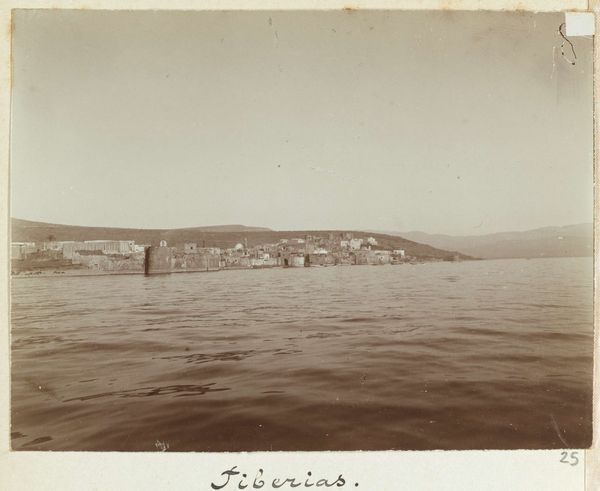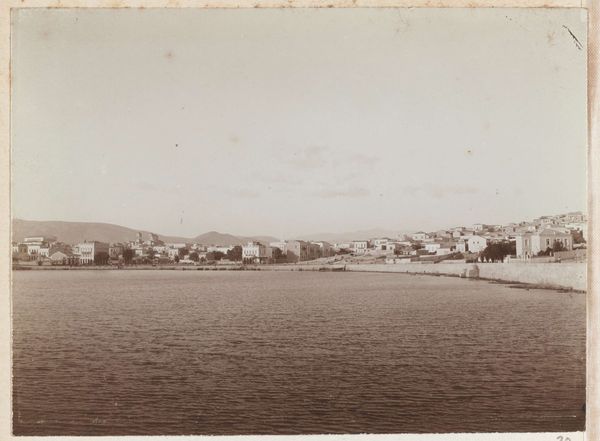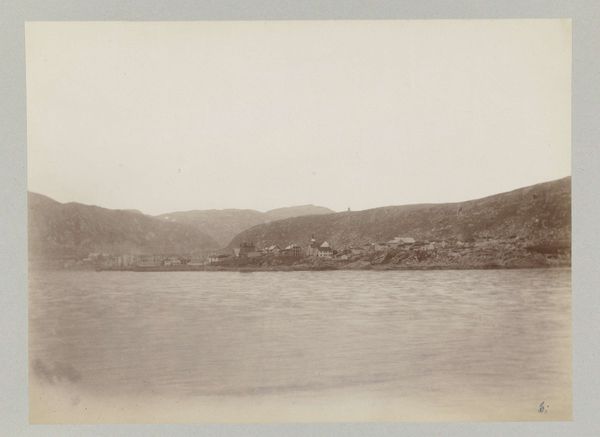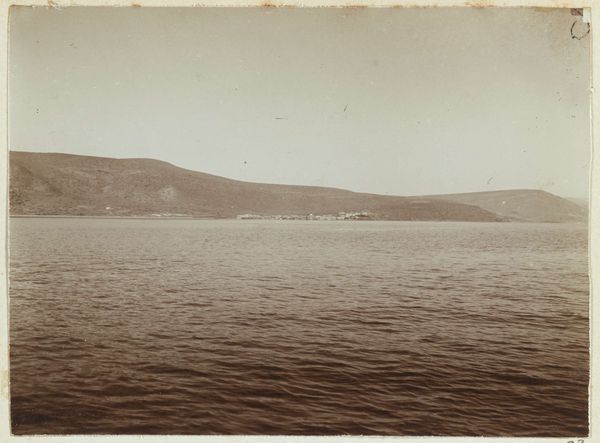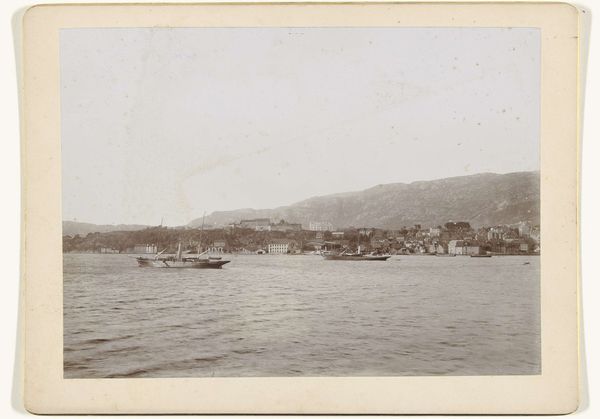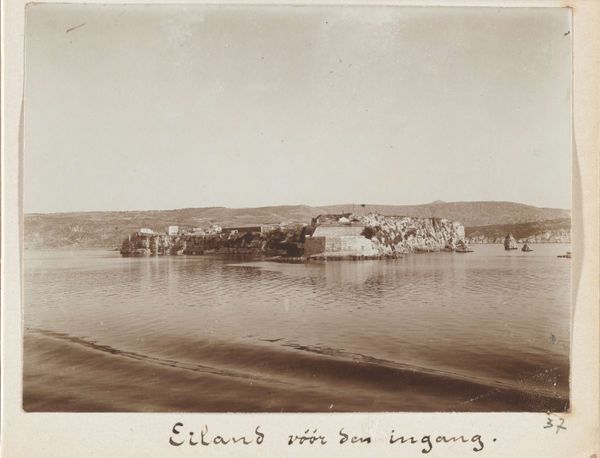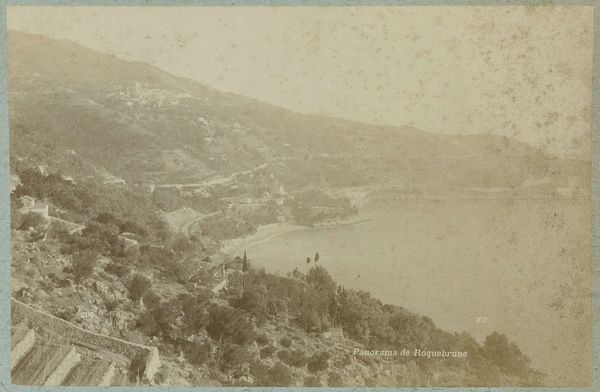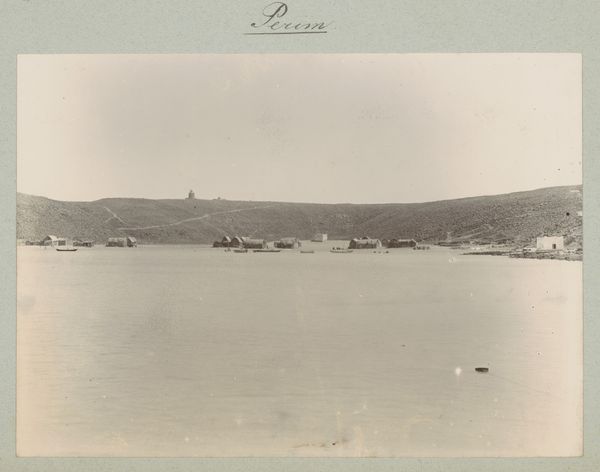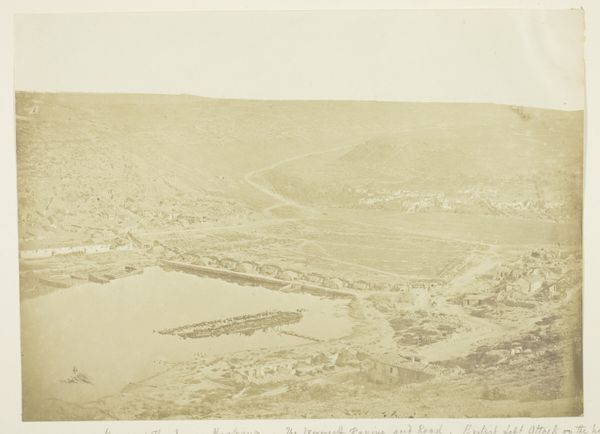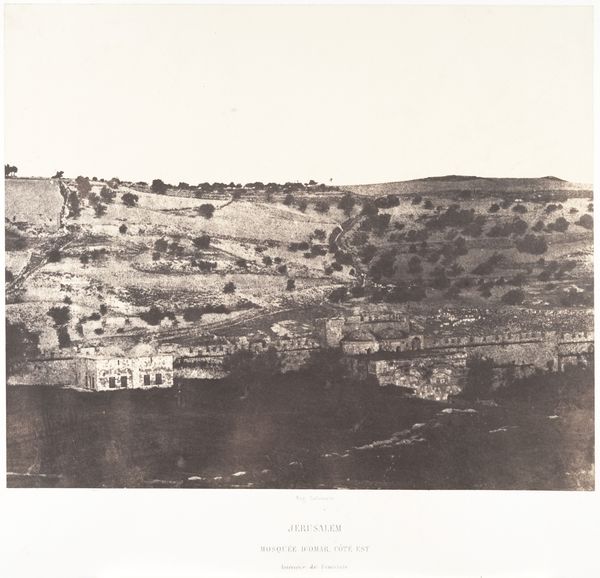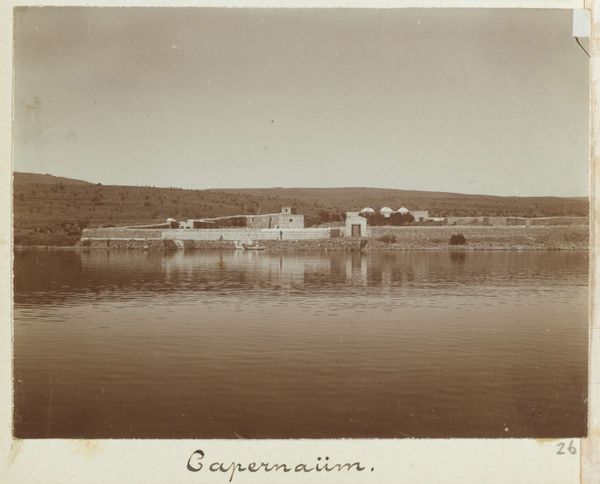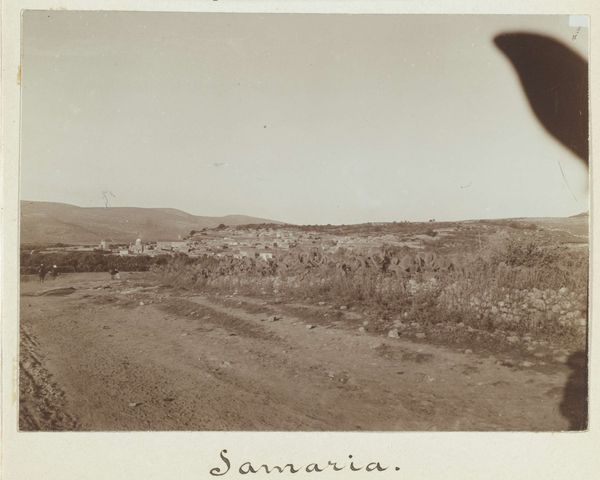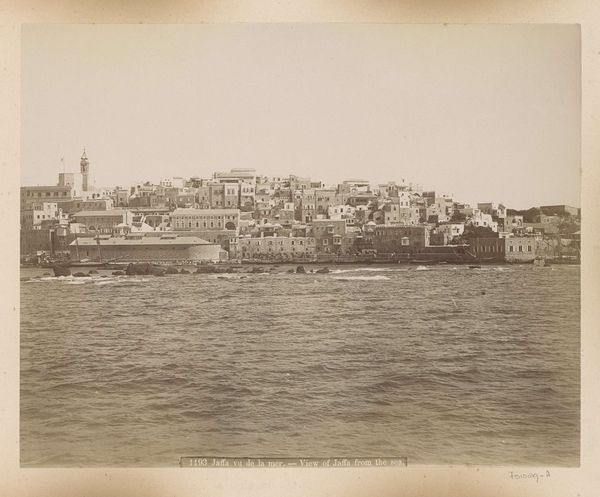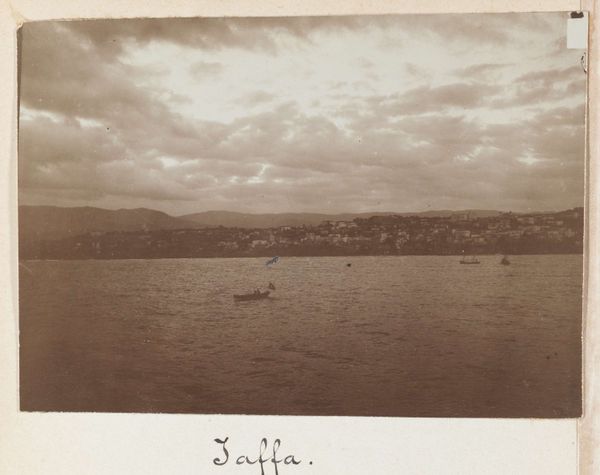
Gezicht op de mogelijke overblijfselen van Bethsaida aan het meer van Tiberias 1898
0:00
0:00
print, photography, gelatin-silver-print
#
print photography
#
lake
#
pictorialism
# print
#
landscape
#
photography
#
orientalism
#
gelatin-silver-print
Dimensions: height 81 mm, width 110 mm
Copyright: Rijks Museum: Open Domain
Johannes Lodewijk Heldring created this photograph of what were believed to be the remains of Bethsaida, on the Sea of Galilee. It's interesting to consider the layers of meaning embedded in a simple image like this. Heldring, a Dutch artist, captures not just a geographical location but a site of immense religious and historical significance. In the late 19th century, there was increasing public interest in religious history, and particularly biblical archaeology. Photography played a crucial role. The act of photographing Bethsaida was itself an act of interpretation. Was it an attempt to connect with the deep past? A desire to confirm religious narratives through visual evidence? Or simply a form of tourism, capturing a picturesque scene for personal or commercial use? Historical context is key to understanding the photograph's meaning and photographs such as these, along with journals and other archival materials, can help us understand its impact on contemporary audiences.
Comments
No comments
Be the first to comment and join the conversation on the ultimate creative platform.
